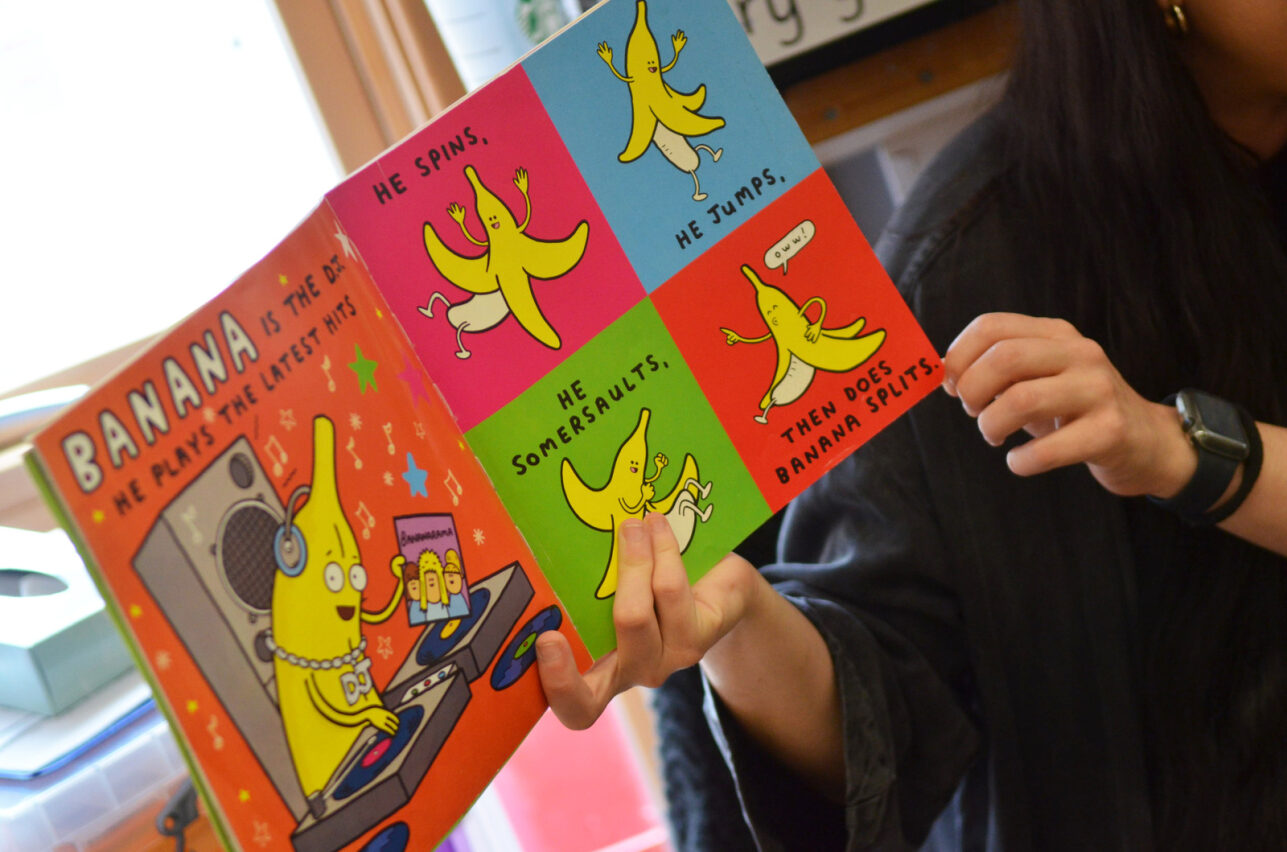

School Leaders: How are the Principles of the EYFS being embedded in your school to support ALL children to flourish and thrive within their learning and development, particularly those with SEND?

I am privileged to be able to work alongside so many children and staff in different Early Years schools and settings; a common theme that educators in EYFS are experiencing at the moment is the increase in children joining them with SEND or developmental differences. In part, this is due to the legacy of covid, however, there are other factors that we need to consider, such as advances in medicine which mean that children born prematurely or with disabilities survive and live longer than before (Education Policy Institute). Most significantly, the increase in SEND within EYFS may be due to our increasing awareness and understanding of neurodivergence.
Educators, professionals and parents have an increasing understanding of what this looks like in the early years, which means we can identify these needs early and support children and their families on the journey towards accessing the right level of support and involvement of other services. This echoes the DfE’s recent SEND Review (2022) findings that children need the ‘right support, right place, right time’. Unfortunately, nationwide, health and education services are overstretched and under-resourced. Therefore, wait times for professional involvement are high, which is impacting on the level of specialist support schools and settings are receiving.
However, as educators, there are so many ways we can review and adapt our practice in early years to ensure all learners feel heard, seen and valued for who they are. We need to start by reflecting on our current approaches and question whether it is neurodiverse-affirming and inclusive practice and what we can change to make our learning environments places where all can flourish and thrive.
Whilst you read this blog, take the time to pause, ponder and then react. How will creating a long-lasting vision for improving play, provision and planning in your Early Years support the learning and development of all children throughout the primary phase and beyond? What role do adults play in supporting this? Take a look at this quote from Dr Brené Brown in her book, Atlas of the Heart:
“Connection is the energy that exists between people when they feel seen, heard and valued; when they can give and receive without judgement; and when they derive sustenance and strength from the relationship.”
Consider these questions below, in relation to the above quote.
Reaching the goal of deep connection and mutual learning from one another takes time. It requires a shift in the way of thinking that the adult’s role is not to just impart knowledge and wisdom onto the child but to learn from them – specifically, to learn how they learn differently and see this, hear it, and value it.
Let’s start with The Early Years Framework which states what our EYFS should seek to provide:
In essence, The Early Years Framework proposes that all early years settings should be inclusive, adaptive and supportive of children’s different stages of learning and development. To achieve this, we need to delve deeper into what the Overarching Principles in early years states:
In the EYFS we want a person-centred approach which values the importance of establishing connections and relationships; providing an environment which is responsive and tailored to individual’s needs, interests and intrigues; seeing parents as valued partners in children’s development journeys, and a deeper understanding of the ways children learn and develop. All of this feeds into how we, as educators, can support individuals on their unique learning paths.
This raises important questions for school leaders to reflect upon, especially in meeting the needs of children with SEND:
It is vital that our early years staff have the knowledge, understanding and skillset to ensure the education they provide is truly inclusive. This means assigning time for specific training and research and then using this knowledge and information to create a vision, an ethos, and a curriculum which accepts and celebrates differences and guides children through their own learning journeys.
As School Leaders you need to be aware of what these principles look like in practice and how you can best support your team to achieve this. The work of our expert Education Development Team can help you with this every step of the way.
Let’s delve deeper into the Unique Child section from the Overarching Principles and look for practical ways to embed effective strategies, approaches and ideas into your early years.
Every child is unique – celebrate, support and extend
Peppered throughout The EYFS Framework is an emphasis on understanding every child is unique and that we should respond to their individual needs, but how do we do this? We are provided with a framework and guidance which identifies typical expectations of development and little else. Therefore, school leaders need to provide relevant training and development for the EYFS team so that they are up to date with the latest research and guidance. Kerry Murphy, Early Childhood and Neurodiversity specialist, leads the way with her published guides on neurodivergent play and understanding neurodiversity in the early years. This is one of many ways you could engage further in developing knowledge around meeting the needs of SEND children within EYFS.
How to support and extend
As the statutory EYFS framework suggests, we need to understand what the needs and differences are for each of our children and we need to consider how we can best support them as individuals. For some children, you may need to involve other professionals or seek specialist advice so that the children are receiving the correct support along their development pathway.
Creating strengths-based one-page profiles for our SEND children, which celebrate differences as opposed to deficits in learning, can really help to shift the mindset of what support can be put in place for individuals to thrive and flourish. In doing this, you may want to consider the question: Should SEND children have interventions or interactions? I would argue that, particularly in EYFS, children should be supported in their learning journey through high-quality and targeted interactions within their play, rather than removing them from their play for a separate intervention. The reason for this is that often, a transition and change to a different environment will trigger children, which results in a negative experience as opposed to the desired outcome of targeted support. Like with many things, there are exceptions to this such as when a child requires personalised and targeted programmes linked to specific areas of SEND. For example, if a child has a set programme of physiotherapy exercises to complete or needs to be in a quiet, one-to-one space for Speech and Language Therapy. Fundamentally though, in order for support to have an impact on a child’s development, it needs to happen frequently and, wherever possible, organically through their play. By following a child’s interests, children are more likely to engage and interact with you. The positive relationship you build will then, over time, result in deeper learning taking place.
How to celebrate
It is vital we see the unique individuality of each of our children and value them for who they are rather than creating environments and expectations which encourage children to fit into a certain criteria or box. At such a young age, children have already created their own outlook and view on the world based on their interests, experiences, and the relationships they have developed. As educators, we need to spend our time interacting with them, getting to know how they learn and then tailoring the learning and environment to meet their needs.
From research, we know that children are more likely to become confident, resilient and self-assured once they feel accepted and celebrated for who they are. One way to celebrate uniqueness is by sharing a range of high-quality texts with our children that explore ‘books as mirrors, books as windows, and books as sliding glass doors.’ Children need to be able to see themselves represented in books (mirrors), recognise and compare the emotions and feelings of others (windows), and understand that all differences are celebrated (sliding glass doors). Creating an emotional literacy-rich curriculum in EYFS, which supports in developing PSED, contributes hugely to that sense of individuality and recognition that everyone is unique and valued. Our Literacy Team have created a unit of work based around the book Perfectly Norman by Tom Percival about a little boy trying to find his identity – take a look here at how this might look in practice and use the planning to have fun with the children whilst they explore how special it is to be themselves!
One of the main aspects of the EYFS framework is the unique child. This blog begins to explore how this can be considered for all children within EYFS. To reflect upon this and take it further within your school you may want to consider:
We know educators can create magic for each child through their individual learning journey, and we feel privileged to be able to work alongside so many schools that do this so well. One final question, whilst you reflect on the unique child, is to consider the reason why you came into education – and compare this to the current practice within your EYFS setting – does this consider all children and are you staying true to your why of putting children first?